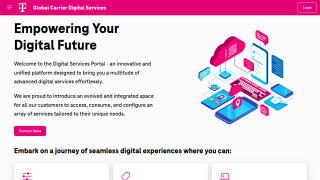
5G options are expanding in the US as fixed-wireless access opens up in more areas, while private campus networks offer businesses another attractive way of capitalising on the latest mobile generation. Dawane Young, executive director of marketing at Verizon Partner Solutions (VPS), explains how these possibilities offer new recipes for growth.
How do you see the situation in the US with fixed-wireless access [FWA], after the boost from operators widening 5G services to mid-range C-band spectrum early last year?
The growth we’ve seen over the last 18 months in FWA in the US has been explosive. The technology is a major focus for Verizon and the rollout of our 5G Ultra Wideband network, which now reaches over 200 million people across the country, is a major engine for this growth.
Additionally, our C-band FWA service is available to over 5 million businesses now and the figure will be significantly higher by the end of 2023 as deployments continue. This becomes a game changer as it expands the map for us as to where we can provide broadband nationwide. It will be exciting to see how we continue to allocate, leverage and monetise the spectrum we’ve acquired over the past few years for uses like FWA.
Why is FWA so important as a connectivity option in the 5G era?
For VPS [Verizon Partner Solutions], FWA is a critical component of 5G deployment in the US because it provides a faster way to deliver high-speed internet connectivity to businesses without the need for last-mile fibre deployments. It’s also an attractive option for expanding internet access to more areas, particularly rural and underserved communities.
In addition, FWA expands the ability to replace traditional POTS and TDM lines with exponentially higher bandwidth and connectivity capabilities. As this migration grows over the next few years, having wider-spread FWA becomes a disruptive offering for us.
Are there any business verticals in which FWA is particularly promising?
I would say that businesses in every vertical and segment have the chance to evaluate their connectivity and whether FWA presents an opportunity. If you look at the proliferation of SD-WAN [software-defined wide-area networking] and SASE [secure access service edge], FWA is an attractive connectivity option for businesses leveraging these solutions.
What’s exciting from a VPS perspective is that our partners sell to every industry segment and vertical, so this aligns well with the strategy of having new options for end-to-end network services.
How does Verizon’s strategy for offering private 5G networks tie in with its approach to FWA? And what are the benefits of having private 5G?
Our overall strategy is to provide multiple options for connectivity that meet the specific needs of our customers, so enabling private 5G as an additional offering falls under that approach.
For organisations, private 5G enables them to deploy a wireless network without relying on the public networks of mobile operators. Deploying it offers several advantages, including greater control and customisation of network architecture, with higher levels of security and bandwidth.
Private 5G also enables the deployment of many use cases and applications, with low-latency, high-bandwidth connectivity to devices.
Which industry segments are seeking private 5G?
We continue to have conversations in the manufacturing space, as businesses look to build new smart factories and warehouses, as well as retrofit existing facilities. We’re also having discussions with many hospitals and healthcare facilities, while other areas include retail and municipalities that need applications and infrastructure for smart cities.
In addition, there’s an opportunity with campus environments that need high-speed, reliable connectivity to support applications, remote learning, virtual meetings and robotics –including universities, R&D facilities and corporate campuses.
A critical component of private 5G networks is the support they provide for IoT devices. With respect to this, our ThingSpace platform, which aids automation, analysis and management of IoT devices in a cost-effective way, offers enhanced capabilities for partners.
What are the future plans of VPS in private 5G and FWA?
Our aim is to partner to build the networks of the future – whether you’re talking about private 5G, FWA or technologies like MEC [mobile edge computing]. Businesses are asking questions around how they improve their customer experience and bring efficiencies to processes through better connectivity.
I think these new services allow them to push beyond this transformation, but there’s an education process that’s occurring across the board about these possibilities.
Over the next 12 to 18 months, we are focusing on how we work together to build the ecosystem, automation and orchestration, as well as interoperability between ourselves and our global partners, to create the future of digital infrastructure.




